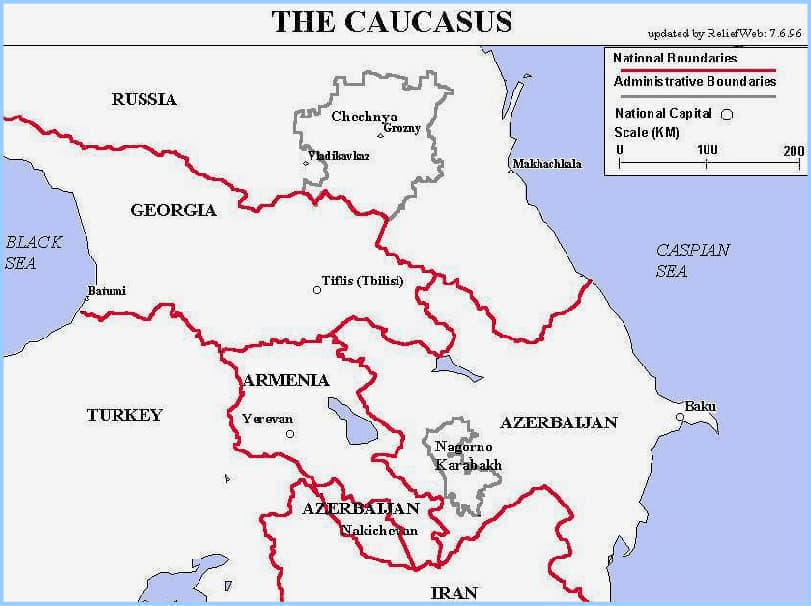A collection of interviews with Valery Korovin, one of the most prominent representatives of the International Eurasian Movement, entitled, Imperskiy razgovor o Karabakhe: geopolitika i etnosotsiologiya konflikta (Imperial Conversation about Karabakh: Geopolitics and Ethnosociology of the Conflict) was published at the exact moment of a sharp escalation of tension in the Transcaucasus, primarily around Karabakh. The authorities of both Azerbaijan and Armenia have taken a number of steps in recent months and weeks that have worsened their relations with Russia in unprecedented ways. The leaders of the Eurasian Movement in Azerbaijan and a number of pro-Russian journalists in Armenia were arrested. Openly anti-Russian statements and steps by both Nikol Pashinyan and Ilham Aliyev followed one after another. The old alliance agreements between Moscow and Yerevan and Baku began to be cynically and demonstratively trampled upon. The Russian Foreign Ministry moved from usual restraint to verbal notes of protest and much harsher statements than usual. Finally, Vladimir Putin and Sergei Lavrov spoke about the aggravation of the situation.
At such a tense moment, when the threat of a new major war in the Transcaucasus could materialize in a matter of weeks, and only the titanic efforts of Russian and Iranian diplomacy to convince hotheads and Western agents in Yerevan and Baku to come to their senses and stop, the appearance of Valery Korovin’s theoretically rich, profound and at the same time practical analysis of the situation in the region is extremely timely.
His small, new book, in addition to a fresh preface, includes 19 interviews given to various media on Armenian and Azerbaijani topics. Five of them were given during the color revolution in Armenia in the spring of 2018; four, during the Karabakh War in the fall of 2020; the remaining ten relate to 2011, 2015, 2016, 2017, 2021, June 2022 and May 2023. The common feature of most of the interviews is rather aggressive questions of journalists obsessed with nationalism and chauvinism, and Valery Korovin’s convincing objections, which reveal step-by-step, the Eurasian vision of the Armenian-Azerbaijani conflict and the ways of resolving it. In relation to each specific new event in the region, Korovin lays out the recipe for a resolution by way of a Eurasian solution, which rejects the very concept of unitary nation-states, and the disastrousness of the Atlanticist baits of the United States and Europe, dangling the fanciful carrot of membership in the EU and NATO in front the face of Yerevan and Baku.
Valery Korovin’s thesis runs through the book: inter-ethnic conflicts throughout post-Soviet space have no solutions in the format of “nation-states.” Attempts to follow this path inevitably lead post-Soviet republics to collapse, impoverishment, destruction of infrastructure, rupture of traditional economic and cultural ties, complete subjugation of their politics to the dictates of the West, and, finally, wars, genocides, and ethnic cleansing. Genuine self-determination of peoples does not require their separation into different states, but presupposes the preservation of their own ethnic identity within the framework of what N.S. Trubetskoy called “pan-Eurasian nationalism” almost a century ago. In the face of this integration program of uniting the whole of internal Eurasia around Moscow, around Russia, all kinds of private nationalisms and chauvinisms that hinder integration, be it Russian, Azerbaijani, Armenian or Georgian, should be resolutely denied. At the same time, on the external contour, Valery Korovin’s Eurasian program allows for the inclusion of both Iran and Turkey in the integration processes, if its authorities are ready to break with the West and take such a turn. In reality, this has not happened so far.
The answer to the question of who benefits from the disruption of Eurasian integration, the incitement of wars and ethnic conflicts, the manic desire to conquer territory against the will of the ethnic self-determination of its people, is simple: firstly, the globalist West, especially Britain and the USA; secondly, those local post-Soviet elites for whom, after 1991, “independence” became an intrinsic value for personal enrichment through the socio-economic degradation of the republics under their control, which was achieved at the cost of orientation towards the West and hostility towards Russia, Iran, and China. This is a recipe for disaster. Valery Korovin is trying to stop Armenia and Azerbaijan on this path, warning them that Russia will not tolerate the collapse of its geopolitical program in the Transcaucasus. His convictions to restore a single strategic and civilizational space of the peoples of Transcaucasia with each other and with Russia will undoubtedly be heard by all reasonable people who care about the survival of their peoples, and will be furiously rejected by pro-Western Atlanticists. Time will soon show whether the pattern of all major wars of the 18th-20th centuries between Russia and Europe (Northern, Patriotic, Crimean, World War I, Civil War, Great Patriotic War), in which the second, southern, Transcaucasian front was invariably open, will be repeated.
Maxim Medovarov is a historian, philosopher and journalist. This article appears through the kind courtesy of Geopolitica.
